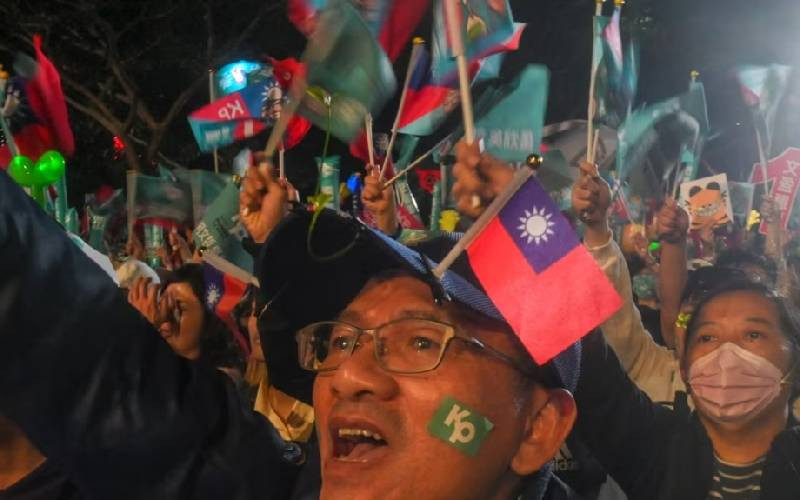×
The Standard e-Paper
Kenya’s Boldest Voice

Tens of thousands of people gathered in southern Taiwan for "Super Sunday" rallies by three presidential candidates making a final weekend push before a crucial January 13 election.
The poll is being closely watched from Beijing to Washington, with the winner set to determine the future of the democratic island's relations with an increasingly aggressive China.